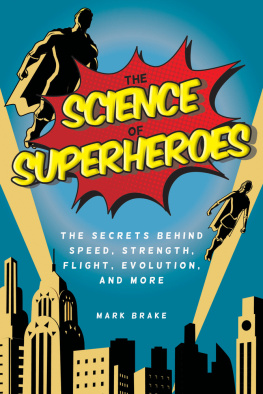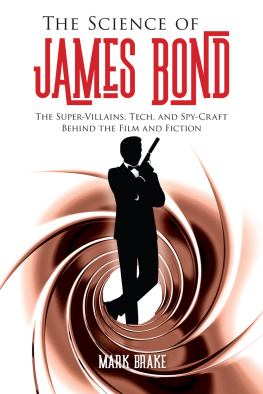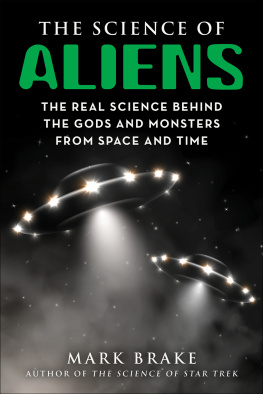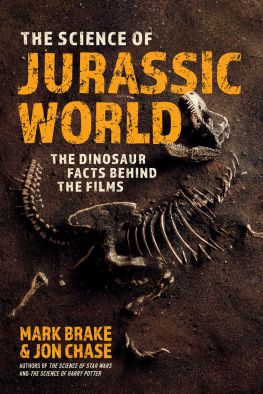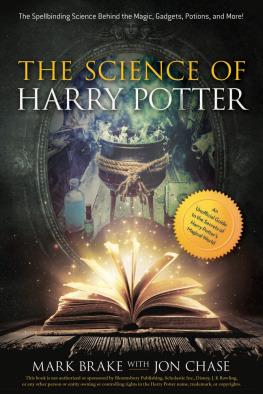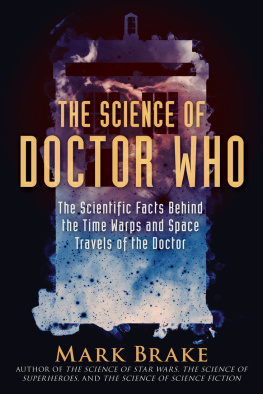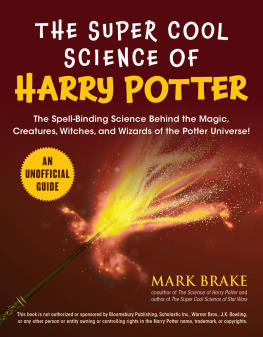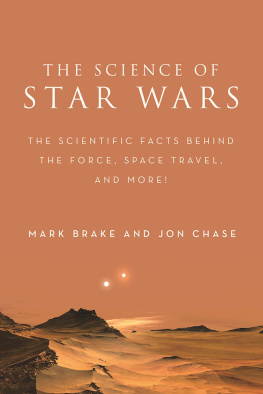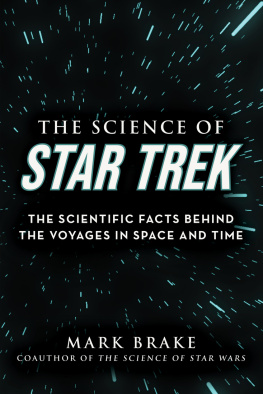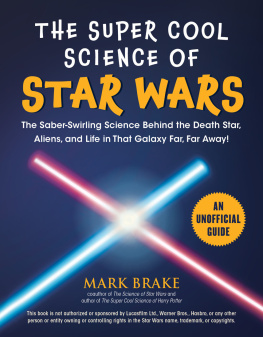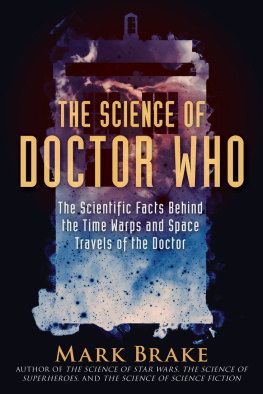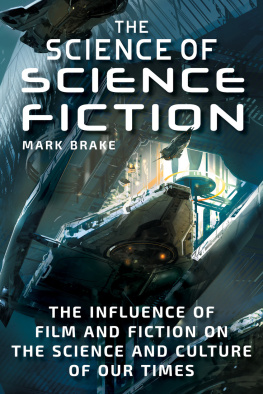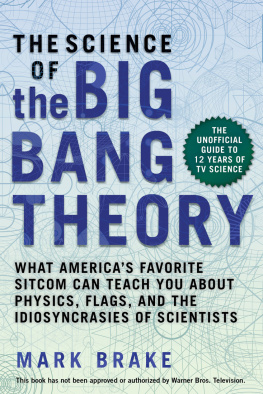Mark Brake - The Science of Superheroes
Here you can read online Mark Brake - The Science of Superheroes full text of the book (entire story) in english for free. Download pdf and epub, get meaning, cover and reviews about this ebook. year: 2018, publisher: Skyhorse Publishing, genre: Romance novel. Description of the work, (preface) as well as reviews are available. Best literature library LitArk.com created for fans of good reading and offers a wide selection of genres:
Romance novel
Science fiction
Adventure
Detective
Science
History
Home and family
Prose
Art
Politics
Computer
Non-fiction
Religion
Business
Children
Humor
Choose a favorite category and find really read worthwhile books. Enjoy immersion in the world of imagination, feel the emotions of the characters or learn something new for yourself, make an fascinating discovery.
- Book:The Science of Superheroes
- Author:
- Publisher:Skyhorse Publishing
- Genre:
- Year:2018
- Rating:5 / 5
- Favourites:Add to favourites
- Your mark:
- 100
- 1
- 2
- 3
- 4
- 5
The Science of Superheroes: summary, description and annotation
We offer to read an annotation, description, summary or preface (depends on what the author of the book "The Science of Superheroes" wrote himself). If you haven't found the necessary information about the book — write in the comments, we will try to find it.
Mark Brake: author's other books
Who wrote The Science of Superheroes? Find out the surname, the name of the author of the book and a list of all author's works by series.
The Science of Superheroes — read online for free the complete book (whole text) full work
Below is the text of the book, divided by pages. System saving the place of the last page read, allows you to conveniently read the book "The Science of Superheroes" online for free, without having to search again every time where you left off. Put a bookmark, and you can go to the page where you finished reading at any time.
Font size:
Interval:
Bookmark:


Copyright 2018 by Mark Brake
All rights reserved. No part of this book may be reproduced in any manner without the express written consent of the publisher, except in the case of brief excerpts in critical reviews or articles. All inquiries should be addressed to Racehorse Publishing, 307 West 36th Street, 11th Floor, New York, NY 10018.
Racehorse Publishing books may be purchased in bulk at special discounts for sales promotion, corporate gifts, fund-raising, or educational purposes. Special editions can also be created to specifications. For details, contact the Special Sales Department, Skyhorse Publishing, 307 West 36th Street, 11th Floor, New York, NY 10018 or .
Racehorse Publishing TM is a pending trademark of Skyhorse Publishing, Inc., a Delaware corporation.
Visit our website at www.skyhorsepublishing.com.
10 9 8 7 6 5 4 3 2 1
Library of Congress Cataloging-in-Publication Data is available on file.
Cover design by Michael Short
Cover photo by iStockphoto
Print ISBN: 978-1-63158-211-0
Ebook ISBN: 978-1-63158-213-4
Printed in the United States of America
For James
Come with me now, my son. As we break through the bounds of your earthly confinement, traveling through time and space. Your powers will far exceed those of mortal men.
Superman Returns
TABLE OF CONTENTS
INTRODUCTION
S uperhero science fiction is turbo-charged and rammed full of ideas. Whether its comic books or movies, superhero stories present us with a bewildering diversity of contrasting themes: extraordinary powers and masked vigilantes, crime and supervillainy, evolution and mutation, cosmic mythology, and alternate timelines. And thats just a sample! But on a more thoughtful level, we could identify four main themes: space, time, machine, and monster. Each of these themes is a way of exploring the relationship between the superhero fiction and the science and, beneath that, a deeper underlying theme of how we humans relate to the nonhuman nature of the science and technology of our ever-evolving universe. Taking a closer look at these themes will explain how this book is structured.
SPACE
The space theme of superhero fiction is usually some facet of the natural world, such as the nine realms of Norse mythology in Thor, or the genres myriad alien creatures, which can be considered an animated version of nature. The seemingly incessant alien invasions of Earth fall under this theme, as do aspects of the physics of flight and motion.
TIME
This theme is about some kind of flux in the human condition, which is brought about by a process revealed in time, such as evolution. Tales on the topic of time often focus on the dialectic of history, so alternate timelines are to be found here, as are evolutionary fables such as immortality, the evolution of Aquaman, and the posthuman homo superior , Captain America.
MACHINE
All science fiction stories are jam-packed with machines, and superhero fiction is no different. Machine tales deal with the man-machine motif, including enhanced humans such as Cyborg and the creation of superweapons such as Iron Mans suit, Thors hammer, and the shield of Captain America.
MONSTER
These superhero stories feature the nonhuman in the form of mutant or monster situated within humanity itself. In these tales there is often an agency of change such as a nuclear catastrophe, which leads to the change of human into nonhuman. It is within this theme that the remaking of man through genetic design is often encountered. Of course, monsters can be downbeat too, as the countless cases of supervillains testify.
Thinking about science fiction as the human versus the nonhuman is satisfyingly elegant and transparent. Mark Rose, professor in the English department at the University of California, Santa Barbara, deserves credit here. His theme of space, time, machine, and monster splendidly serves the purpose of charting superhero fictions ongoing dialogue with science, so this book is structured around these four themes. It will allow us a closer look at how superhero fiction works in its special relationship with science.
PART I
SPACE
WHAT IF SUPERMAN PITCHED FOR THE METROPOLIS METEORS?
E xterior. Kent farmdaytime.
Clark is three now. He faces Jonathan, ten feet away. Like any three-year-old, Clark tosses a baseball to his dad. A few other baseballs scattered about.
JONATHAN: Good. Excellentnice arm.
Jonathan rolls the ball back to the kid. Clark picks it up, throws it again.
JONATHAN (contd): Yes. Great control you see that?
CLARK: yeah
JONATHAN (tosses it back): Okay, give it a little more juice. A little of that Kent magic.
And Clark hurls the ball OUT OF THE STATE. Jonathan just watches it go.
JONATHAN (contd): oh God
J. J. Abrams, Superman screenplay FIRST DRAFT (2002)
There does seem to be a sense in which physics has gone beyond what human intuition can understand. We shouldn't be too surprised about that because we're evolved to understand things that move at a medium pace at a medium scale.
Richard Dawkins, The Very Best of Richard Dawkins: Quotes from a Devout Atheist (2015)
It followed from the special theory of relativity that mass and energy are both but different manifestations of the same thinga somewhat unfamiliar conception for the average mind. Furthermore, the equation E=mc in which energy is put equal to mass multiplied by the square of the velocity of light, showed that very small amounts of mass may be converted into a very large amount of energy and vice versa. The mass and energy were in fact equivalent, according to the formula mentioned before.
Albert Einstein, quoted in Atomic Physics , by the J. Arthur Rank Organization, Ltd (1948)
I didn't mean to hit the umpire with the dirt, but I did mean to hit that bastard in the stands.
Babe Ruth, New York Times (1922)
I'm not particularly fond of Gotham. It's like someone built a nightmare out of metal and stone.
Superman, Superman/Batman Vol 1, #53 (2008)
BATMAN VERSUS SUPERMAN (MY TAKE ON A DELETED SCENE)
A full house at the Gotham stadium roars as the players take the pitch. Against a sweltering Gotham skyline, the green gauze of the baseball diamond is lit up for a steaming nighttime encounter: their very own Gotham Knights against fierce rivals, the Metropolis Meteors. Each side is playing its own superhero ringer. The Meteors are fielding Superman, and the Knights have high hopes that their home batters box will feature the Batman himself. His slugging potential must surely be awesome. After all, his name is bat-man, right?
Has there ever been a more dramatic debut? Not in baseball, anyhow. The competition is keen and the air electrified with tension. Men are born for games. Little else, it sometimes seems. Each one knows that play is nobler than work. He knows too that the value of a game is not innate to the game itself. Rather, it is in the value of that which is put at risk. Games of chance need a wager to warrant any meaning at all. Games of sport not only involve the skill and strength of the opponents, but also their humiliation in defeat. By trial of chance, or trial of worth, all games aspire to the state of war, for in play that which is wagered gulps up game, player, and all.
At the allotted time the lights seem to brighten further in the heat. The sheer din dies down. Superman steps forward to take his place on the pitchers mound. Upon seeing the Man of Steel, a strange wall of noise sweeps across the crowd like a Mexican wave. Some start to catcall. Some rise from their seats and jeer, the heat and tension of the night getting the better of their sense of fair play. Expectation is high, yet what happens next takes everyone by surprise.
Font size:
Interval:
Bookmark:
Similar books «The Science of Superheroes»
Look at similar books to The Science of Superheroes. We have selected literature similar in name and meaning in the hope of providing readers with more options to find new, interesting, not yet read works.
Discussion, reviews of the book The Science of Superheroes and just readers' own opinions. Leave your comments, write what you think about the work, its meaning or the main characters. Specify what exactly you liked and what you didn't like, and why you think so.

